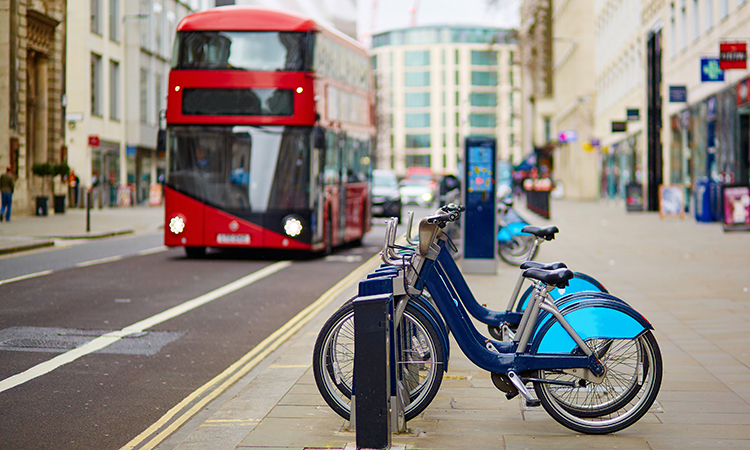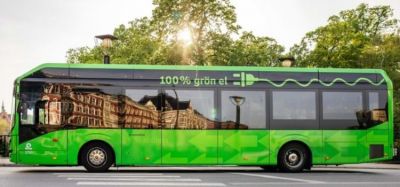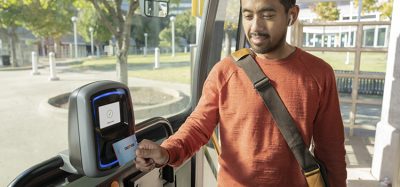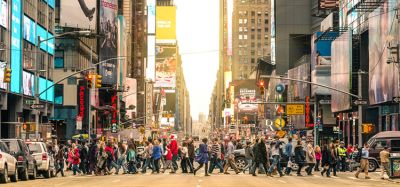New ITC report calls for policy change to support green recovery of transport post-pandemic
- Like
- Digg
- Del
- Tumblr
- VKontakte
- Buffer
- Love This
- Odnoklassniki
- Meneame
- Blogger
- Amazon
- Yahoo Mail
- Gmail
- AOL
- Newsvine
- HackerNews
- Evernote
- MySpace
- Mail.ru
- Viadeo
- Line
- Comments
- Yummly
- SMS
- Viber
- Telegram
- Subscribe
- Skype
- Facebook Messenger
- Kakao
- LiveJournal
- Yammer
- Edgar
- Fintel
- Mix
- Instapaper
- Copy Link
Posted: 19 October 2021 | Intelligent Transport | No comments yet
Following major shifts in behavioural patterns as a result of the pandemic, the Independent Transport Commission has called for a responsive policy change that seizes the available opportunities for UK transport.


A new report by the Independent Transport Commission (ITC) – Britain’s leading transport and land use think tank – that examined the impacts of the pandemic on domestic travel demand, land use and transport infrastructure has concluded that a policy change is needed to respond to behavioural changes and seize the available opportunities to better align with climate change imperatives.
The report – ‘The COVID-19 Pandemic, Transport and Land Use in Britain: Key strategic issues for policy makers‘ – authored by ITC transport experts Sarah Kendall and Dr Matthew Niblett, and informed by a wide-ranging industry consultation, found that the impacts of the pandemic have resulted in major shifts in behavioural patterns, as well as accelerating pre-existing travel and land use trends, subsequently requiring a major system reset.
The nature of the COVID-19 pandemic means that it is difficult to predict future trends and timing. However, with road traffic having returned to pre-pandemic levels and public transport (rail, bus and underground) recovering more slowly – currently to about 60 per cent of pre-pandemic levels – the identified impacts and opportunities are:
Leisure travel dominates rather than commuting
Weekend and leisure travel on all modes has recovered much more quickly than commuting travel, which is likely to remain subdued due to changes in working patterns. Weekend road traffic now exceeds pre-pandemic levels, while leisure travel on rail has recovered strongly. On the other hand, the reduction in peak ‘rush hour’ travel offers an opportunity for better capacity utilisation of the UK’s transport networks.
The home delivery economy needs to be managed
Road freight (both HGVs and vans) now significantly exceeds pre-pandemic levels, driven by the huge growth in online retail. This trend is likely to be permanent, and points to the need for increased use of local consolidation centres and improved last mile delivery solutions in order to reduce congestion and harmful emissions, especially in urban areas.
Local neighbourhoods should be part of a green future
There is a trend towards localism and a focus on services within a short walking or cycling distance of home, both in rural and urban areas, including the so-called ‘15 minute city’. Low traffic neighbourhoods have supported the renewal of local high streets. This will have implications for strategic and local planning and can help to reduce the need for longer-distance travel, as part of a net zero carbon strategy.
Funding uplift needed for public transport in order to deliver net zero carbon
If the UK government’s net zero carbon targets are to be met, increased and ongoing financial support for public transport services will be necessary compared to the pre-pandemic situation. This will be essential to prevent a permanent large-scale modal shift from bus/rail to car travel, with associated negative impacts on congestion and air quality. This is also necessary to support the key workers who keep the UK economy going, many of whom rely on public transport services.
Road charging mechanisms will be needed to shift behaviour
In order to avoid a further increase in road traffic arising from the crisis, and to support the policy objective of phasing out petrol and diesel vehicles as part of the net-zero carbon targets, new road user charging mechanisms and parking charge schemes must be implemented soon. This can be done in ways which incentivise electric vehicle use, following the ‘polluter pays’ principle, and can potentially discourage unnecessary car travel and relieve congestion.
Dr Matthew Niblett, Director of the Independent Transport Commission, commented: “Commuting and shopping behaviour has changed significantly. The pandemic has accelerated longer-term behavioural changes, causing dramatic shifts in demand and patterns of use, which, if harnessed, can lead to better outcomes for society as we move towards a lower carbon future. The government’s stated priorities of tackling climate change, improving air quality, driving economic recovery, reducing economic disparities and improving the user experience are all possible following the pandemic, but require a different approach. Additional investment and financial support for public transport will be essential.”
Sarah Kendall added: “The pandemic has created an opportunity to improve our neighbourhoods and our transport networks as the economy recovers. Policy interventions are needed to avoid increased pollution and carbon emissions and declining public transport and accessibility”
Related topics
COVID-19, Passenger Experience, Public Transport, Sustainable Urban Transport, Transport Logistics
Related cities
United Kingdom
Related organisations
Independent Transport Commission (ITC), UK Government
Related people
Dr Matthew Niblett, Sarah Kendall








